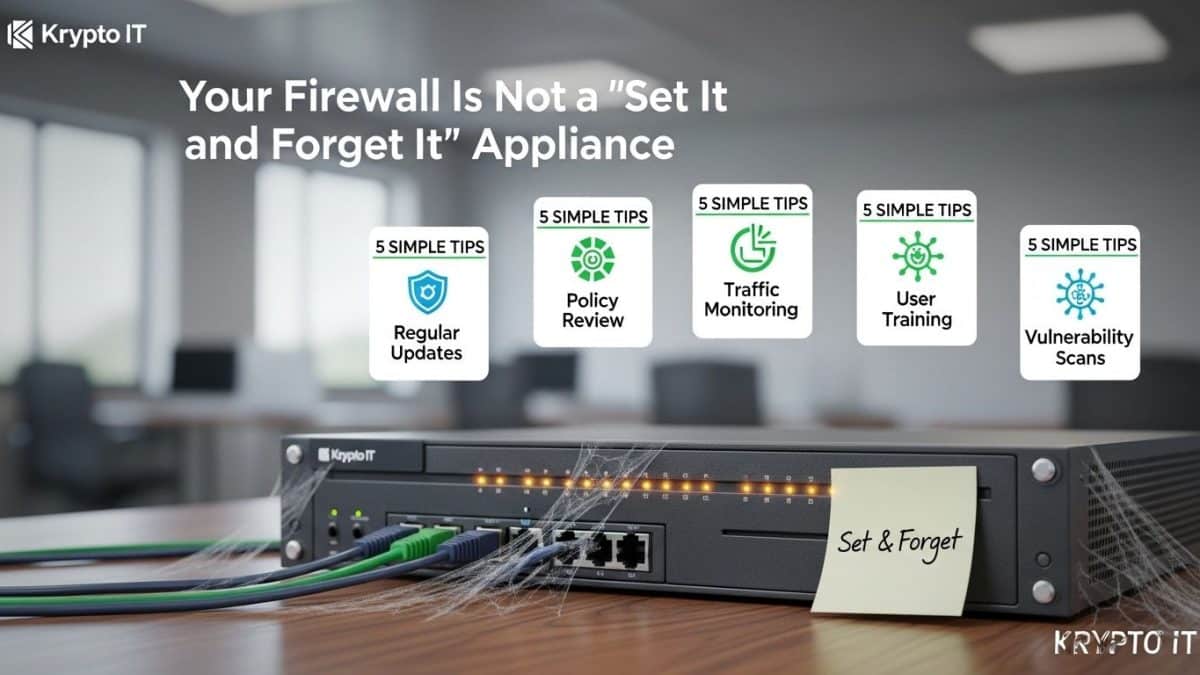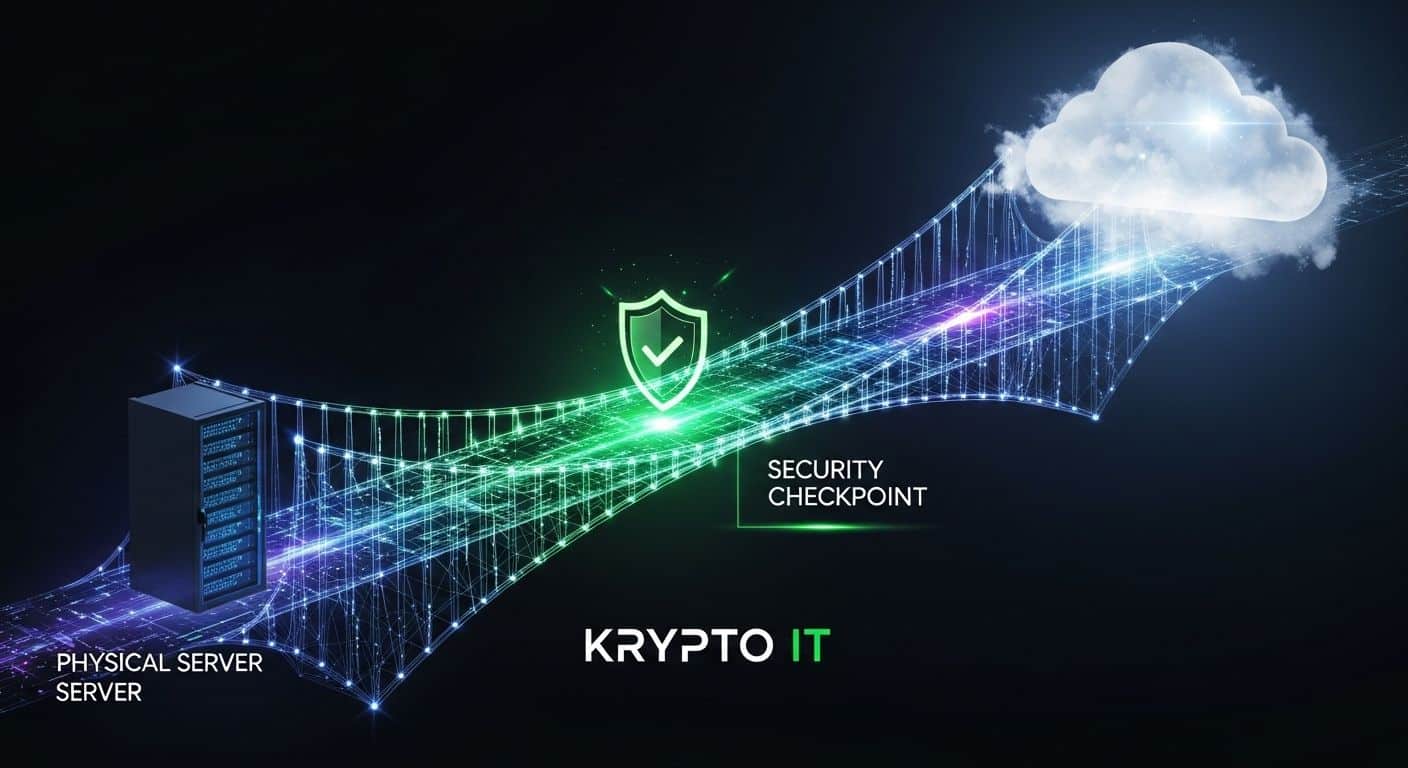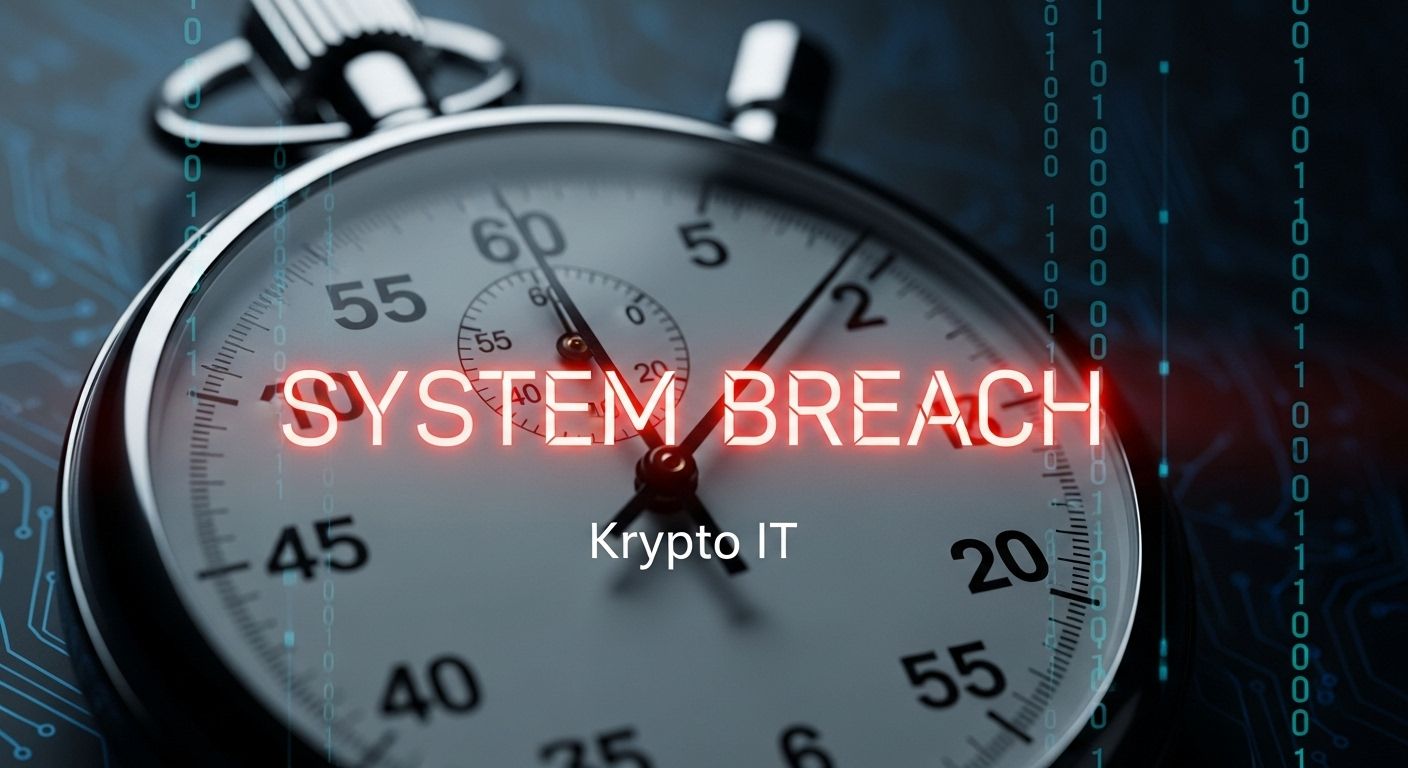
Don’t Wait for a Ransomware Attack: Defeat It with Smart Backup
September 27, 2025
The Hidden Dangers of Free Software and Public Wi-Fi: A Security Check-Up for Your Team
September 30, 2025For many small to medium-sized businesses (SMBs), the firewall is viewed as the ultimate digital bouncer—a device you install, plug in, and forget about, assuming it will handle all the threats at the door. While a good firewall is absolutely essential, this “set it and forget it” mentality is one of the most dangerous myths in modern cybersecurity.
Cyber threats evolve hourly. A static, unmonitored firewall quickly becomes a liability, leaving gaping, silent holes in your defense. At Krypto IT, we know that your firewall is a dynamic tool that requires ongoing attention to provide the protection your business deserves.
Here are 5 simple, actionable tips for SMBs to ensure your firewall remains a fortress, not just a fancy paperweight.
1. Update Firmware and Software Regularly (Don’t Skip Patches!)
This is the golden rule of all network security. Firewall manufacturers constantly release firmware updates to address newly discovered vulnerabilities and zero-day exploits.
- The Risk of Delay: If a hacker discovers a flaw in your specific firewall model, and you haven’t applied the patch, you are essentially leaving the door wide open. Automated bots continuously scan the internet for unpatched devices.
- The Krypto IT Solution: Make updating firmware a non-negotiable part of your monthly maintenance routine. Better yet, partner with a Managed IT Service Provider like Krypto IT who handles this critical, low-level patching automatically and off-hours, ensuring maximum security and zero downtime.
2. Practice “Least Privilege” for Firewall Rules
Every time someone needs access to a specific port or service, a new rule is often created on the firewall. Over time, these rules pile up, creating complexity and often leaving unnecessarily large “holes” open to the internet.
- The Risk of Over-Permissiveness: If a former employee’s access or an outdated service rule is left active, it offers an unnecessary attack vector. You should only allow the bare minimum access required for a business function to operate. This is called the principle of Least Privilege.
- The Krypto IT Solution: Review your firewall rules at least quarterly. If a service or port access is no longer required—for instance, temporary access granted to a contractor—delete the rule immediately. If you can’t remember why a rule exists, it’s probably time to investigate and potentially remove it.
3. Implement Strong Logging and Reporting
A firewall isn’t just a barrier; it’s a surveillance camera for your network traffic. It logs every packet that attempts to cross it. These logs are invaluable for spotting suspicious activity before it turns into a breach.
- The Risk of Ignoring Logs: If an attacker is testing your defenses with repeated scans or attempts to connect, the only place that activity shows up is in the firewall log. Ignoring those logs means ignoring the initial warning signs.
- The Krypto IT Solution: Ensure logging is enabled and configured to send alerts for high-priority events, such as multiple failed login attempts from external IP addresses or unexpected outbound traffic. For our clients, Krypto IT uses advanced Security Information and Event Management (SIEM) tools to analyze these logs 24/7, catching anomalies that a small business owner would easily miss.
4. Regularly Review VPN and Remote Access Configurations
With the rise of remote work, Virtual Private Networks (VPNs) are now a common feature of most SMB firewalls. These features essentially extend your company’s perimeter to remote users, making them a primary target for hackers.
- The Risk of Neglected VPN Users: If an employee leaves the company, and their VPN credentials are not immediately disabled on the firewall, they (or a bad actor using their credentials) retain direct access to your internal network.
- The Krypto IT Solution: Conduct an audit of all active VPN user accounts and certificates monthly. Disable any accounts belonging to departed employees or contractors immediately. Furthermore, ensure MFA (Multi-Factor Authentication) is mandatory for all remote VPN access.
5. Never Rely on Default Credentials
This may sound obvious, but many firewall appliances are installed using factory-set, default administrator usernames and passwords. These defaults are often publicly known and are the first thing an attacker will try.
- The Risk of Default Passwords: Leaving a default password is the equivalent of installing a bank vault door and writing the combination on a sticky note.
- The Krypto IT Solution: Immediately change the default administrative credentials to a strong, unique, complex password stored in a secure password manager. Furthermore, change the default login URL or management port if possible, and ensure the management interface is only accessible from internal, trusted networks.
Your Firewall Needs a Partner
For the modern SMB in Houston, cybersecurity is a full-time, 24/7 job. Your firewall is a powerful appliance, but without proactive management, monitoring, and regular updates, it cannot keep up with today’s sophisticated threats.
Don’t let your “set it and forget it” mentality turn into your costliest mistake. Krypto IT specializes in managing and monitoring your entire security stack, including your firewall, so you can focus on running your business with confidence.
Contact us today to schedule a comprehensive security review and ensure your firewall is truly protecting your business, not just warming a rack.




